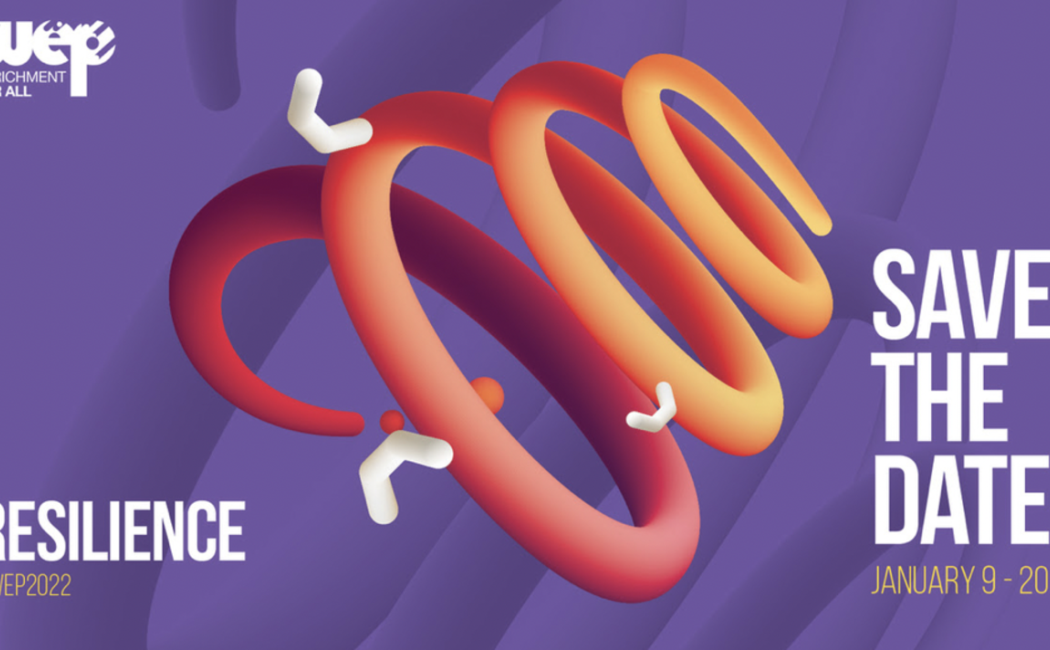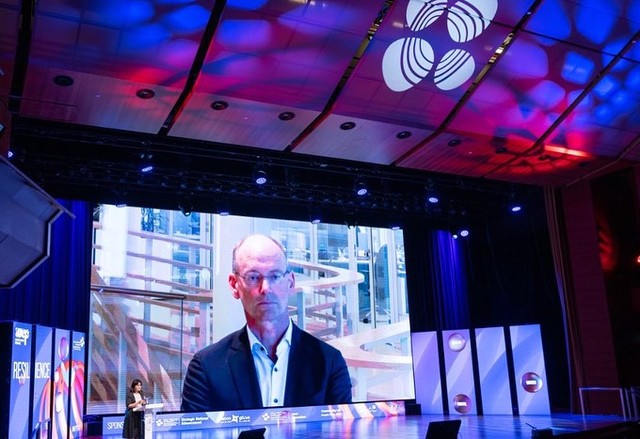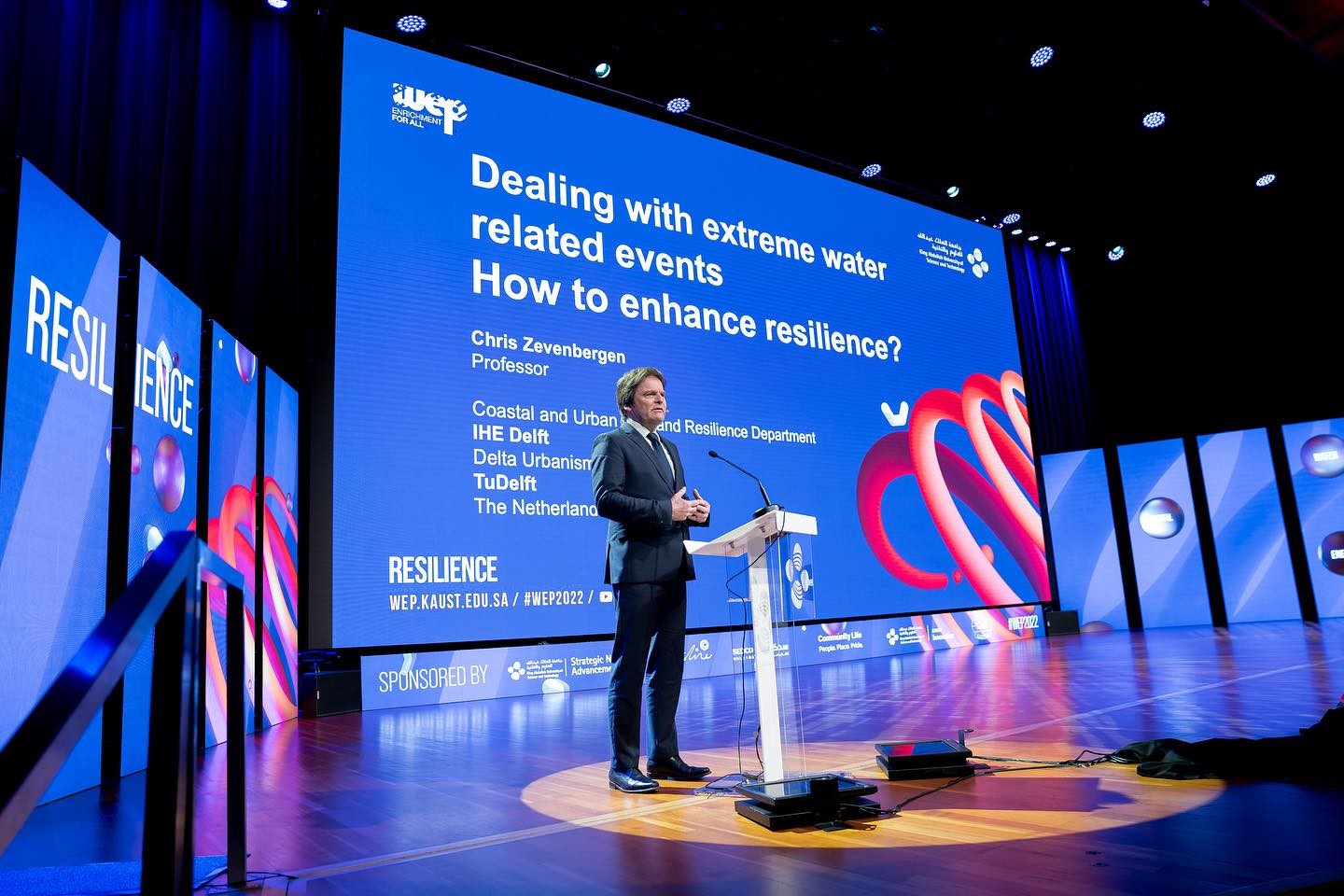


23 January, 2022
This year's WEP was chaired by Professor Peiying Hong, a faculty member of WDRC. Through a series of keynotes, lectures, panel discussions, and workshops, WEP 2022 highlights the various tipping points or global challenges that continually impact us. WEP 2022 also discusses how through technological ingenuity or policies, we can instill the concept of "Resilience" to withstand those detrimental impacts.
Among the many sessions that took place during WEP 2022, of particular relevance to members of WDRC are the sessions by Professor Cees Buisman (Wetsus and Wageningen University) and Professor Chris Zevenbergen (IHE-Delft and TU-Delft).

2022 WEP Keynote lecture: "Search for coherent innovations for a resilient world" by Professor Cees Buisman
In Professor Buisman's keynote titled "Search for coherent innovations for a resilient world", Professor Buisman raised the point that despite all the various global challenges that occur times and again throughout humanity's history, technological innovations have continued to allow humanity to continue to adapt and thrive against these challenges. However, he forewarned that technological innovations should not always be profit-driven but should also stem from the passion for solving persistent problems plaguing humanity and contributing back to society. He also highlighted the need to trace back to the roots of our complex problems that most times are created by man and emphasize more on nature-based approaches to solve some of our problems. For example, instead of relying on chemical pesticides or fertilizers, why not focus on understanding the soil metaorganism and enhancing the soil to support our crops? Why do we not opt for resource recovery from waste streams and continue to recycle those nutrients within the environment instead of relying on artificial chemical fertilizers? Professor Buisman continues to raise various examples that challenge the current paradigm and urged us to reconsider how to improve our current innovations to continue to adapt to the new challenges lying ahead of us.

2022 WEP Keynote lecture: "Dealing with extreme water related events. How to enhance resilience?" by Professor Chris Zevenbergen
In Professor Zevenbergen's keynote titled "Dealing with extreme water related events. How to enhance resilience?", Professor Zevenbergen cautioned that cities are going to increasingly experience higher intensity rainfall events as well as higher than anticipated sea level rise induced by climate change. Although many cities have gradually adopted strategies to adapt to these extreme water-related events, Professor Zevenbergen urged that perhaps more need to be done to transform existing water infrastructure to allow cities to remain resilient towards extreme events. An example of resilient water infrastructure in urban cities would include incorporating blue-green features that allow capture, slowing down water flow and/or discharge of water at designated locations depending on the situation. As the global population continues to grow, the majority of the people will be living in urban cities. Reimagining our cities to be resilient against climate change would be vitally important.